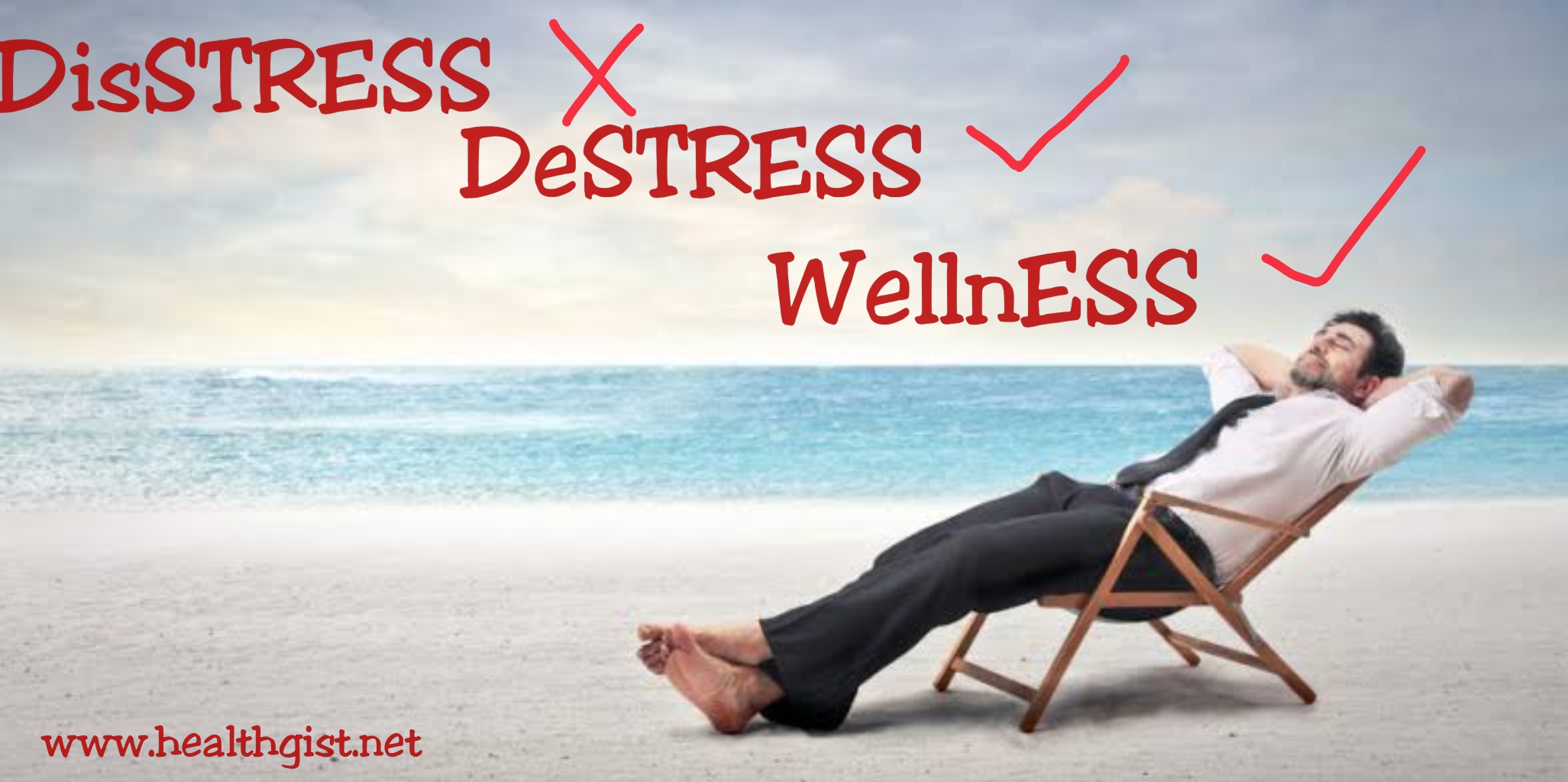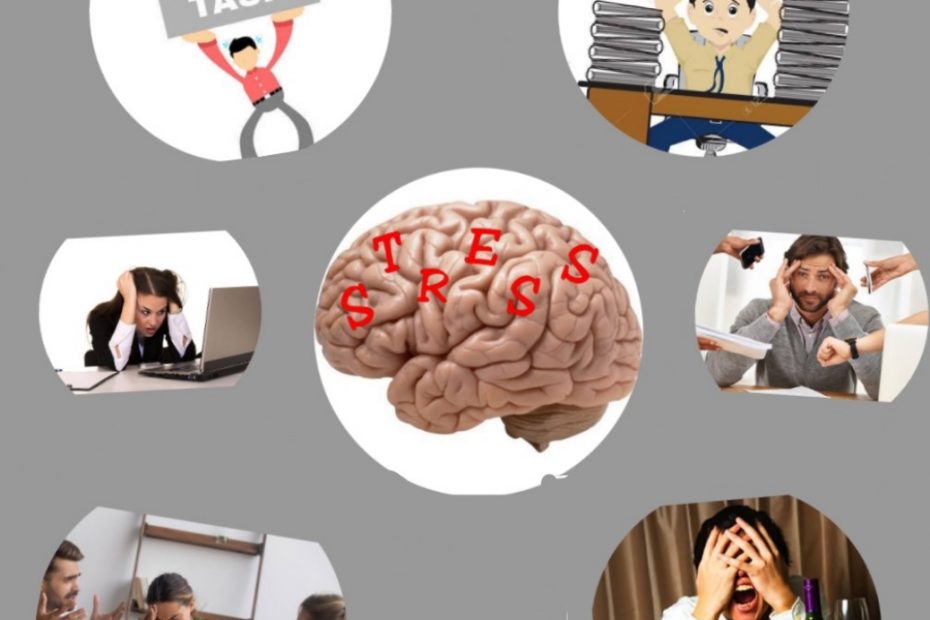Getting stressed at one point or the other as we go through our daily activities is inevitable. Sometimes, it gets to a point your whole body system is literally screaming at you “I need to rest” or “I need some time off” from whatever is causing you stress. Stress is a biological response that kicks your system into ‘defense mode’. It is the natural way our body reacts when we are unable to cope with certain circumstances or meet up with certain demands.
You can be physically stressed (working at a job), mentally stressed (worrying too much) or/and emotionally stressed (dealing with difficult relationships). As energy sapping as stress seems to be, it can have positive effects, pushing your body into a fight or flight response to deal with difficult situations. For instance, as you work harder to meet a deadline, your body reacts by keeping you alert and tense until that deadline is met, only then will you feel comfortable enough to relax. As helpful as that can be, it is important to find a way to de-stress. This is because, the more stressed you are, the more your body system seems to get used to it and you don’t even realize how much you are being affected not only health wise but also in your social relations and this can be dangerous.
Our stress in a way affects the people around us. For instance when you are stressed, you are prone to more emotional outbursts like anger and anyone who is at your receiving end may not be able to cope with this. While anything or circumstance can cause stress, people experience stress on different levels, what causes you stress may mean nothing to another person.
Stress can either be acute or chronic. Everyone feels acute stress at one point or the other. Acute stress is short termed and you easily feel relieved after you might have dealt with whatever is causing you stress. Chronic stress on the other hand is long term stress lasting for weeks and even months. Acute stress if not managed can lead to chronic stress which is when you become so used to being stressed that you do not try to get relief. Chronic stress can have serious health consequences. The list of health problems caused by or associated with chronic stress is endless.
Symptoms
The Symptoms of stress are numerous. They arise from the effect stress has on the body. As earlier stated, you can be physically, mentally and emotionally stressed and we will categorize the symptoms based on these:
Physical symptoms
– Respiratory and heart problems such as chest pain, difficulty in breathing, high blood pressure, rapid heart rates
– Body aches and muscle cramps
– Paresthesia ( pins and needles sensation in the limbs)
– Digestive problems like stomach ache, nausea/vomiting, loss of appetite
– Problems with the reproductive system like erectile dysfunction, reduced libido/sex drive, menstrual problems
– Frequent illness due to a weekend immune system
Mental/Emotional symptoms
– Emotional problems such as depression, a feeling of being overwhelmed (constant crying may result), feeling lonely which often results in social withdrawal, feeling anxious and having trouble focusing on tasks, getting irritable with sudden angry outbursts.
– Poor concentration, Poor perception of circumstances, Poor memory, getting easily confused or disoriented.
– People under chronic stress are also prone to resort to substance abuse as a coping mechanism and may develop addiction disorders.
– Eating disorders
– Nervous habit like nail biting
Treatment

Treatment for stress doesn’t require any medical prescription. Your doctor would only prescribe drugs for you if you are suffering from depression or body pains or an underlying disease. Stress can be handled by certain lifestyle changes and therapy. The following points can be of help:
– Engaging in regular exercise as exercise helps the body produce endorphins, which can be a natural stress relief. Besides your body can fight stress better when you are physically fit.
– Try to engage in those activities you find relaxing
– Maintaining a healthy diet would provide the necessary energy you need to cope with your daily activities and help reduce stress
– Never try to ignore the fact that you are stressed. Don’t over work yourself or push yourself to the limit; always try to rest whenever you can
– Prioritize and schedule your activities and also plan ahead
– Spending time with family and friends can help combat the feeling of being lonely which is often associated with stress. They can also act as a source of support for you. Meanwhile if your stress is caused by troubles in relationships, try to find a common ground and resolve your differences. Letting go of toxic relationships may also be a safer option.
– Refrain from substance abuse, they might provide temporary relief but the effect wears off and addiction is a cause of significant health concerns.
– Try to rein in your feelings when you are stressed, in fact, if possible, move away from situations that would produce a negative outburst from you as this can worsen your stress
– Learn to say no sometimes and try to set boundaries/limits to requests you won’t be able to fit into your schedule especially if there are other options for help. After all, you will be more productive when you are physically and mentally fit.
– Set realistic goals and also try to put time for yourself on your priority list
The list on how to cope with stress is a long one. This is because what causes stress in people differ. So the important thing is take note of whatever causes you stress and deal with them.
NB: the above treatment plans are usually more effective if you apply them in time. In some cases, you might require professional help like therapy to deal with chronic stress.
FOR FURTHER READING:
20 WAYS TO RELIEVE STRESS AND ANXIETY
HOW TO EAT MINDFULLY: GOODBYE TO STRESS EATING
HOW DOES STRESS AFFECT YOUR WEIGHT?

Oyewole Ibukun is currently a Medical student of Olabisi Onabanjo University. She has a passion for seeking knowledge with a creative, detail oriented and analytical mindset.

